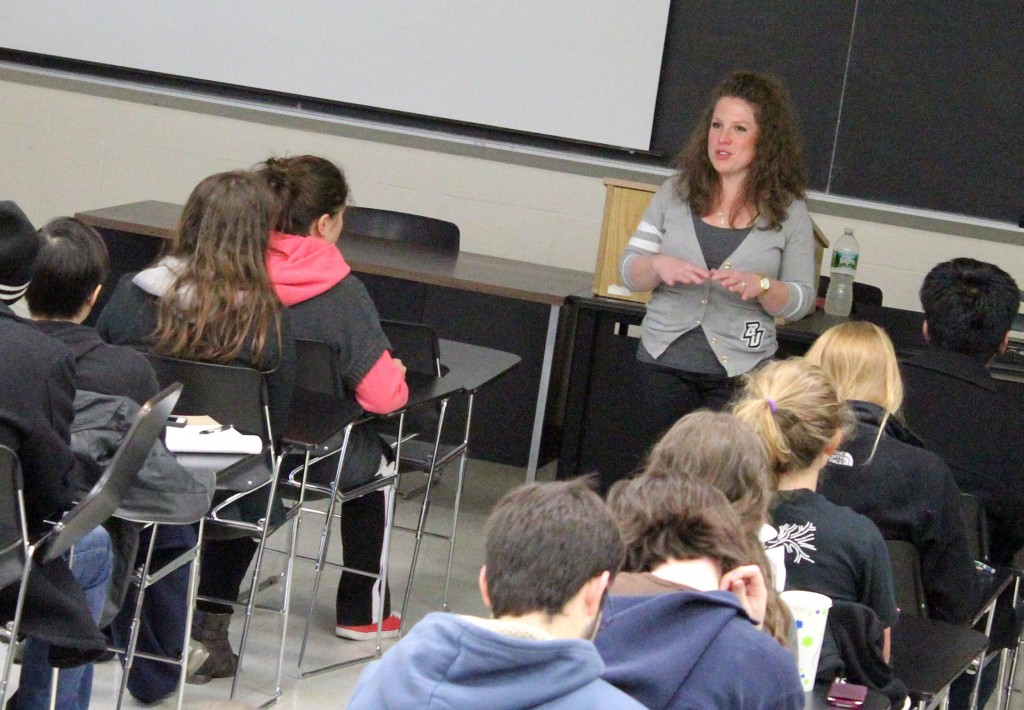
A professor gave a well-timed talk about the causes, consequences and prevention of stress to students staring down the barrel of finals week.
Jessica Surdey, adjunct lecturer in the health and wellness department, spoke to about 55 students on Friday afternoon in the Fine Arts Building about stress management techniques and goal-setting.
Surdey began researching stress management while pursuing her master’s degree. She has recently completed her personal training certification and wellness coach certification. She also owns a business providing wellness education to personal clients and businesses.
“If we don’t learn to cope with it, then stress can literally take over our life and body,” said Amanda Seifert, a junior majoring in psychology, who attended the presentation. “It made me realize just how stressed out people can get.”
Surdey began the session by giving a definition of stress.
“Stress: I like to define it as any change you encounter,” Surdey said.
After distinguishing among different types of stress, Surdey had students participate in a self-assessment to identify their personal stress index. The questions posed a variety of stress-raising scenarios, including the frequency of arguments, economic troubles and lack of sleep. Surdey suggested getting seven to nine hours of sleep each night.
Surdey also discussed the physical effects stress can have on the body. She said chronic stress can cause depression, headaches, insomnia and hypertension, among other symptoms.
“Stress is definitely a compounding effect on heart disease,” Surdey said.
After laying out the causes and effects of stress, Surdey shared management techniques.
“There are a lot of stress management techniques; unfortunately, not all of them are positive,” Surdey said. “One of the best techniques I like to do is simply reframing.”
Surdey said some students drink or use drugs to cope. She suggested that students should simply flip their thinking from negative to positive instead. She also discussed more common preventatives, like managing your time, setting boundaries, asking others for help, meditating and eating well.
During the session, Surdey taught students stress management techniques such as deep breathing exercises and progressive muscle relaxation.
Surdey concluded the session by reminding students to be S.M.A.R.T. with their goal setting, meaning that their goals should be specific, measurable, action-oriented, realistic and time-restrained.
“Think about your life six weeks from now and what you want your goals to be,” Surdey said. “Then six months from now and then a year. If you keep that in front of you, it makes the little stuff more manageable.”
Seifert said the S.M.A.R.T. method is a good way to construct goals.
“I thought the method about making lists about setting future goals about where you want your life to be in six weeks, six months, one year, five years and 10 years was a great strategy to use to manage your stress,” she said. “I’m glad I went and was able to find out these helpful ways to manage stress.”
Zeinah Issah, a sophomore majoring in English, said she thought the session was fantastic and that she planned to take Surdey’s stress management class that has been offered since last fall.
“It was definitely an eye-opener for me,” Issah said. “I didn’t realize how stressed I am. I’m going to try some of the techniques. I’m glad that I came out; it was really good.”


